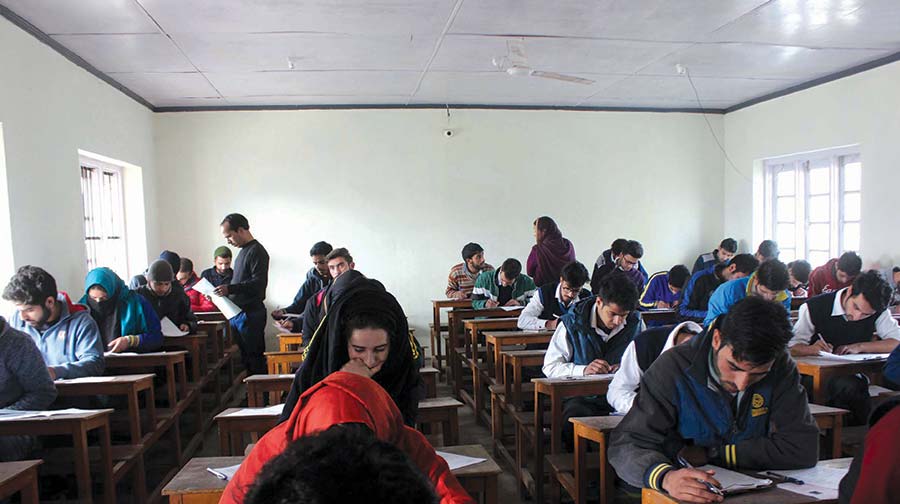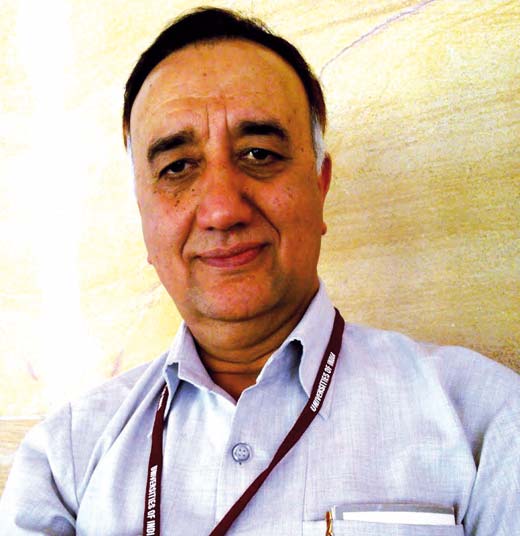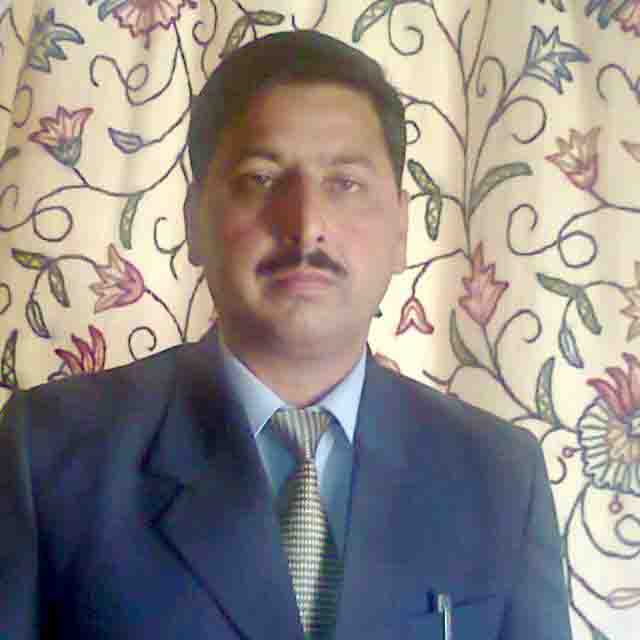It took almost three years from starting investigations to the delivery of the verdict. But as a group of 43 people goes to jail for one of the major academic frauds in recent history, the state police’s Crime Branch has created a new landmark in crime investigation, reports Masood Hussain

As the hoard of parents moved to the Central Jail in late 2013, when the State Police Crime Branch’s (CB) investigations into the Common Entrance Test (CET) paper leak peaked, the jail authorities faced an interesting situation. All these parents had paid brokers for the question papers. Some of them, parents were related to each other.
While they were killing time, they would usually revisit those days of thrill they paid hefty sums for helping their wards to become doctors. With everything exposed, they would tell the tales to each other. It was during one such interaction that a person detected that his relative – who had provided the question paper to him had actually overcharged him. His relatives had purchased papers for Rs 2 lakh and he gave a copy to his relative for four lakh thus making a kill in between. As it was unwittingly exposed, the two picked up a quarrel in the jail and the well-fought battle actually ended only after the deposed Chairman of Jammu and Kashmir Board of Professional Entrance Examinations (BOPEE), Mushtaq Peer, now convicted, intervened.
But these quarrels would remain part of their family histories forever. Not because they deceived each other but because they resorted to a larger fraud and managed to get their wards into the Government Medical College (GMC). A year later, those candidates, unworthy of the status, were sent home. Now most of them stand convicted, along with their parents. They lost money, their face and the future of their wards.
When these 29 “doctors” were sent home from the GMC, there were suggestions that the resultant vacancies should be filled on basis of the waiting list. But it was not feasible because the entire list had scattered itself across various professional training and had complete more than one year. That is why the GMC output for 2012 would remain barely two-thirds of its capacity. But it was better to keep the classroom part-empty. One of the “doctors” who had managed his entry had earlier failed to spell chemistry correctly!
Well before the CB investigation revealed the details of one of the “meticulously planned” frauds in Kashmir academics, the GMC had come to the conclusions already. GMC had conveyed the CB as early as November 29, 2013: Beenish Bhat, Shafiqul-Rehman (minor), Bazilla Bilal, Khursheed Bashir Dar, Yasir Yousuf, Mehak Hamid, Yasmeen Jan, Mehvish Bashir Tantray, Mir Danish Majeed, Saima Hussain, Naveed Ahmad Bhat, Mansha, and Amira Shakeel were found not eligible due to failing in sessional awards; Ahmad Faraz and Yasir Yousuf Hajam remained absent as they had not filled the examination forms; and Mir Heena Saleem, Arooz Mushtaq had failed in the examination and Mushtaq Ahmad Lone and Meem Hye Mehran Dar had re-appears.
By the sheer involvement of people and the pin-point accuracy with which the managers of the examination and the beneficiaries worked in tandem, the CEE-2012 is a historic landmark. But what is more important is that the way, the investigations took place.
Three elements were crucial to the investigations: a total of 44 cell phones that the people involved used; the money trail that the CB sleuths successfully probed and established and finally the incapacity of the wards, they were so keen to send as doctors for future. These three things led to convictions of 43 people, perhaps the larger number of people in a single judgement. These included two doctors – both sisters, a DFO rank officer, one Assistant Executive Engineer, one physical education director, and bank manager and various businessmen. The students who had managed their admission lost their admissions and were convicted too.
What is more interesting is that Farooq Ittoo, the person who was solely responsible for taking the examination papers from the BOPEE Chairman, and distributed it to more than 40 candidates directly and through his agents, became the approver. He will be the only person who is free.
Mushtaq Peer, the principal accused in the case, was awarded three jail terms of rigorous imprisonment for different offences which will go consecutively. He has been fined Rs 1 crore which will be recovered as land revenue by the collector.
Ittoo had appointed various agents, apart from selling the prized possession to a few, directly. Sajjad Ahmad, Mohammad Amin Ganai and Suhail Ahmad Wani were his main agents. Sajad was awarded 12 years of rigorous imprisonment and a fine of Rs 50 lakh. Ganai and Suhail Wani were given rigorous imprisonment for eight years and imposed a penalty of Rs 5 lakh each.
Haroon Rashid Lone and Shabir Ahmad Dar had assisted Sajjad. They will go to jail for six years and cough up Rs 5 lakh fine as well.
The court has awarded 19 parents three years rigorous imprisonment and a fine of Rs 5 lakh each. Besides, 11 candidates, who have turned adults, were imprisoned for a yearlong simple imprisonment. The Chief Judicial Magistrate, in whose court trial is going on against nine juveniles – all candidates, the decision is still awaited.
The trial court has suggested a mechanism for compensating the candidates who were pushed down in the merit list by the candidates who had access to the question papers. “Out of the fine amount so realized, each of the candidates whose score was more than 90% in the academic side in the qualifying examination and had appeared in the CET 2012 and was within the next fifty candidates in the order of merit from the cut of point, shall be paid fifty thousand rupees each as token compensation,” the court ruled.

The Court, however, was dismayed that the prosecution had left out at least two persons, mothers of two juveniles Shafiq-ul-Rehman and Saima Hussain. Both the candidates have lost their fathers. Rehman’s father had singularly paid Rs 20 lakh, the highest amount any parent paid for the question papers of CET-2012 but was “let off without reason”. Besides, the Court said the CB should have investigated more than 50 candidates.
“Our first task was to get the link between Peer and a broker,” one CB investigator who was part of the investigation and the trial. “Once we established it, it took a few weeks to identify the entire chain that worked as agents, broker’s salesmen and beneficiaries.”
What was interesting was that the entire gang worked in a limited geography of south Kashmir. There were quite a few modules that offered a one-odd paper to clients in Sopore, Jammu and in Srinagar. “What we could establish was that Peer sought Rs 60 lakhs from Itoo and then it was left to him how he managed that sum,” the investigator said. “He first sold it to his clients and then he gave a copy each to his agents who had their own clients.”
The biggest indicator of fraud came from the names in the list. For the first time, a substantial number of successful candidates who had made it to the top of the CET 2012 list were from south Kashmir.
Mir Wajid Majid of Wandilo (Kokernag) topped the list. His sister, Mir Danish, was at No 17 of the merit list. “We used to study about 10 hours a day but that is not the only thing which matters,” she told a reporter. “What is necessary is that your concepts should be clear and you should plan your studies.” Wajid, son of a pharmacist, had even indicated that he will now crack UPSC examination.
Their story is interesting. Their father had almost fixed a deal with a broker for the question papers. The broker had taken them home. But, at the last moment, they silently left and reached their uncle’s home in Manghal because he had arranged a paper for his son Saddam Farooq. They had the paper at no costs and one of them topped the examination. Interestingly, they had appeared in CET 2011. Wajid had secured the 1737 rank, his sister was at 8620 and Sadam Farooq, their cousin who had secured No 5 rank, was trailing at 2633, a year earlier.
An analysis of the academic background of the top 50 candidates suggested that a particular cluster was almost in a line and that their merit in the earlier examination was unimpressive. In fact, 20 out of 40 individuals in the list were from a south Kashmir cluster. It was something that GMC later proved during internal examinations as well. Almost all the brokers and the families of the beneficiaries were known to each other and that is how the operation succeeded.

Among the parents who were desperate to see their wards in the GMC, were two sisters. Both of them are doctors: Dr Praveen Shafi Bhat, living in Qayoom Colony, Rawalpora, wanted Beenish, her daughter to be a doctor. Her sister Dr Sabina Showkat Ahangar, a resident of Hafiz Colony, Peer Bagh, also was keen to see her daughter Mansha going to GMC.
“That accused Dr Sabina, Dr Praveen and Bashir Ahmed Tantray paid Rs 48.0 lacs in total to accused Suhail Ahmed Wani out of which accused Dr Praveen paid Rs 20.0 lac, Bashir Ahmed Tantray paid Rs 12.0 lacs and Dr Sabina paid Rs 16.0 lacs,” the CB established. “That Dr Sabina paid Rs 5.0 lacs by cheques and the balance amount was paid in cash.” Dr Sabina had issued the cheque from Shopian, her place of posting. Her sister was posted at Sopore during the CET 2012.
During the entire investigation that spanned for more than a year, the CB could trace one candidate, a handicapped one, who had refused his parents to take the question paper. “When the brokers came with the question papers, they banged their door and the family did not respond,” a CB sleuth said. “Then, they scaled their wall and got in and were finally told that they do not require the paper because their ward is not interested.” The boy had told his father that while he is already facing a crisis in life, he does not want to complicate his life by resorting to dishonesty. The man later deposed before the court and gave credit to his son and not to himself.
With this system in operation, while Peer, according to the verdict, got his Rs 60 lakh, all others made money. One of the agents is established to have distributed question papers to not less than 40 candidates and has made Rs 84.50 lakh. The balance amount, after paying Peer, he is understood to have spent Rs 24.50 lakh “on the surgery of his daughter at Vishakhapatnam.” CB sleuths said Peer’s 315-second call to Ittoo from his official landline is the clinching evidence against the officer.
Crime Branch investigation led by an SP rank officer, Aftab Ahmad, with a full-fledged team including Mohammad Shafi and Syed Afaq, is water-tight because it establishes physical interactions between the accused and then the entire money transactions part. Investigators remember how Javed Gilani, the then IGP, would preside over a daily evening meeting. They filed as many as four supplementary charge-sheets so far. An insider said one more is in offing. But what nobody will appreciate is that the entire story was public in 2013 and a local news gathering agency had detailed even the minute details of the racket.
“It was not only the investigation, even during the trial the public prosecutor worked overtime,” one investigator said. “Even the investigating officers were cross-checked by the defence, some for as many as 45 days in a row.” The case was tried in a fast track court presided by Y B Borney, who would personally record the details of the trial open his laptop.
What is more interesting is that the 2012 selections were in a way not disputed. It was in the summer of 2013 when the question papers were mixed at the examination centres that triggered a major issue. The government wanted to investigate this mess that the CB revisited 2012 selections and the skeletons came tumbling down. “The first to get exposed was Itoo because there was information that he was a personal friend of Peer and that is how this all started,” one investigator said. “The investigations were still taking place that the GMC sent all the fake students home but by then the entire script of the fraud was out in open.”















